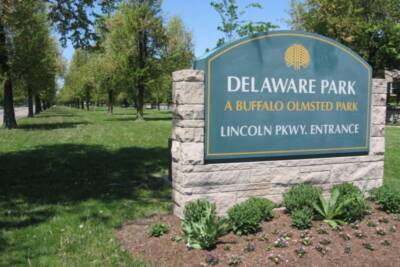The Beavers saw themselves as academic royalty, gnawing their way to the upper branches of the university money-tree.
Far from burning the midnight oil or scholarly tallow (with two wicks, of course) at both ends, some academics, not unlike power-hungry politicians, devote themselves to gnawing their way to the upper branches of the university money-tree.

This was true of the “Beavers,” as they called themselves in the days when Citizen’s Band (CB) code-names were the rage. Each had a high-end SUV (Jeep Grand Cherokee) – emblem of their bleeding-heart (well, some organ) empathy for Native American causes.
They were known to drive around the extensive loop of Buffalo’s Olmstead-designed Delaware Park, while beaming up each other as “Beaver King” and “Beaver Queen.” They saw themselves as academic royalty.
“Love your cod-piece, King”!
“Copy your non-chastity-belt, Queenie!”
King had left the priesthood for an academic life, and Queen, a rabbi’s daughter, had abandoned Torah-study for literary criticism, which, as it turned out, she never practiced, attaching herself to King’s research shawl as if she were Lois Lane and he Super-mensch.
They married soon after joining the faculty. He taught a course, when he showed up for class, on “Old Testament Rituals in Hawthorne,” she on “T.S. Eliot’s, Last, Yes, Seder.”
None of us saplings could imagine at first a more ecumenical union of personal and scholarly commitments, until we realized that they saw us as peasants, at best, under glass.
As soon as I had a social opportunity, meeting in the mailroom, I expressed an interest in his work, puzzled as I was about it, and hoped we would exchange ideas since I had written a number of articles on “Circumcision Anxiety in Henry James’ Ghost Stories.”
He glowered at me, bared his teeth, and said, “Not interested, schmuck, you’re a loser, it’s my field.” I knew he had grown up in Hoboken, but I still was taken aback by his New Jersey insult. ”Maybe it’s a bad day,” I thought, “Dame Queenie may be keeping him out of the dam.”
That turned out not to be the case. Every time we passed in the halls, he would glare at me and snarl quietly, “Pecker-head!”
They soon became the couple everyone loved to hate, but they stood for the Humanities in two many positive ways to be held back – merit raises, promotions, NIH Grants, guest speakers at Seneca Nation pot-lucks.
You couldn’t go against one without going against the other, and there was no way, understandably, to go against a woman without hurting yourself in a post-macho era.
They did everything short of plagiarism and composing fake letters of job-offers to climb up the salary-ladder, but they didn’t cross the “moral turpitude” line.
He came close when he published an article on “Henry James’ Ineffable Hernia” in the Journal of Literature and Urology,” but he didn’t cross the line. It was, in fact, good work.
They managed as well to persuade a distinguished medical group to create a joint Endowed Chair of Literary Anatomy for them. It was too lavish a gift and significant public recognition of the department’s standing for anyone to suggest that “genetic” criticism, as it was called, the precise genesis and development of a writer’s text, and “genitalia,” weren’t related.
The years passed and the Beavers gnawed on. The anonymous Anglo-Saxon poet says, “This, too, shall pass,” and it turned out to be true.
I was, despite everything, inspired by King’s industry and felt that I understood him somewhat when I discovered that both our fathers, heavy into 100% wool-garment manufacturing, had lost everything when the market went synthetic.
As we approached retirement, their dam seemed patchy, and I had logged more than a few publications myself.
Impulsively, I extended an olive twig in the hope that we might become something like congenial colleagues before our tributaries entered the river of time.
I sent a note: “If a log cabin is a symbol of success, the two of you are the Abe and Mary Todd Lincoln of our department and beyond.”
Time passed, no response, but just before they moved to an ocean-front condo in Palm Beach, he sent me a pricey Hallmark Card: “Well, I admit it, you were only a shmo, let’s schmooze sometime, if you can afford, I doubt it, to stay at The Breakers.”
Not Francis Bacon’s Advancement of Learning, but maybe, a touch of Robert Frost’s “For once, then, something.”
Howard is the author of a new short novel, Distant Love. He is working on a novella: Almost There… (an erotic-elegiac comedy). James Thurber’s My Life and Hard Times and Leo Rosten’s The Joys of Yiddish are two of his favorite books. He doesn’t regret having a Ph.D. (he did get to see every University of Michigan home football game for four years, a lovely daughter came into the world in Ann Arbor, and he did have some accomplished, even generous, professors), but he’s not convinced that a doctorate has much to do with writing, though it does enable one to be a teacher, a worthy profession, as it turned out.
- Red States in the Sunset - August 10, 2023
- A Robin Hood Rerun - July 26, 2023
- Space Exploration: In Dreams Begin Responsibilities - July 3, 2023

